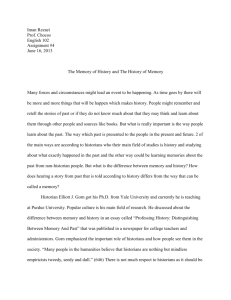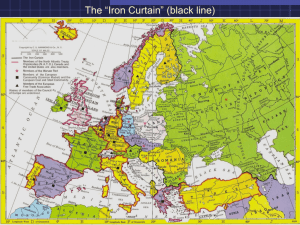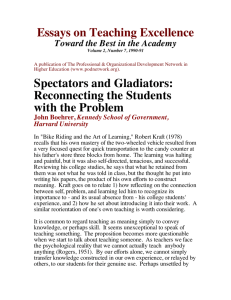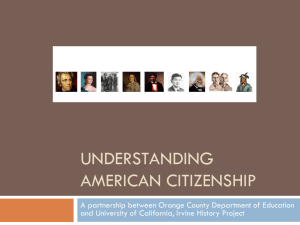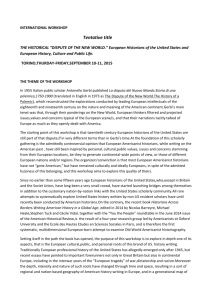Pick, Dominik. The fall of communism in Central and Eastern Europe
advertisement
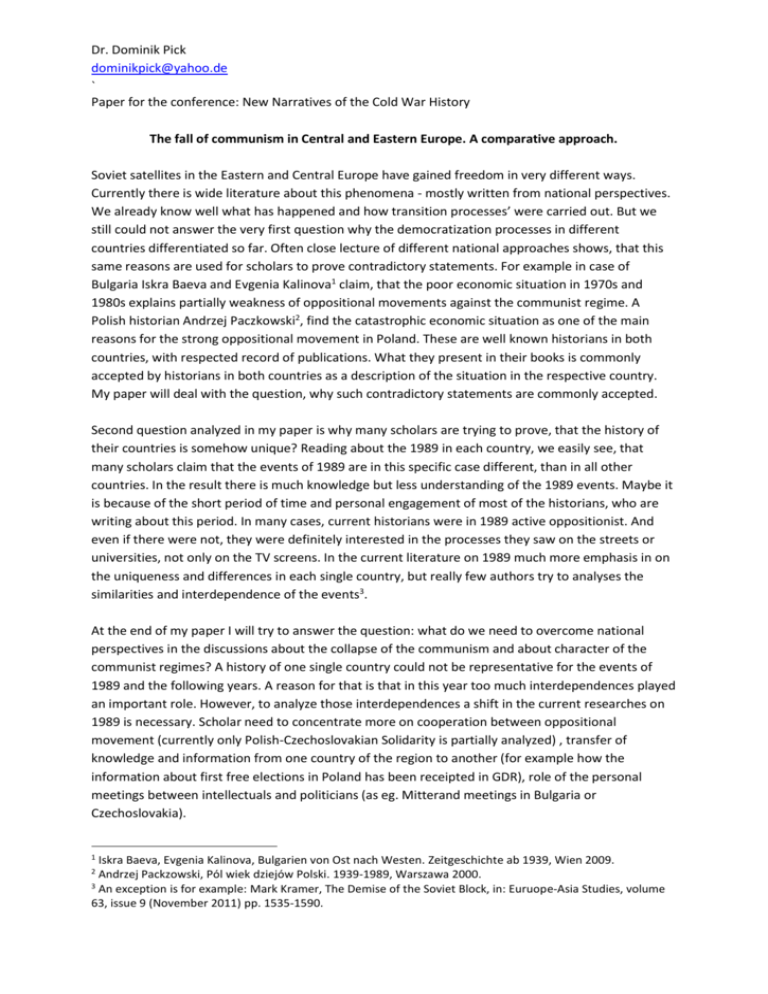
Dr. Dominik Pick dominikpick@yahoo.de ` Paper for the conference: New Narratives of the Cold War History The fall of communism in Central and Eastern Europe. A comparative approach. Soviet satellites in the Eastern and Central Europe have gained freedom in very different ways. Currently there is wide literature about this phenomena - mostly written from national perspectives. We already know well what has happened and how transition processes’ were carried out. But we still could not answer the very first question why the democratization processes in different countries differentiated so far. Often close lecture of different national approaches shows, that this same reasons are used for scholars to prove contradictory statements. For example in case of Bulgaria Iskra Baeva and Evgenia Kalinova1 claim, that the poor economic situation in 1970s and 1980s explains partially weakness of oppositional movements against the communist regime. A Polish historian Andrzej Paczkowski2, find the catastrophic economic situation as one of the main reasons for the strong oppositional movement in Poland. These are well known historians in both countries, with respected record of publications. What they present in their books is commonly accepted by historians in both countries as a description of the situation in the respective country. My paper will deal with the question, why such contradictory statements are commonly accepted. Second question analyzed in my paper is why many scholars are trying to prove, that the history of their countries is somehow unique? Reading about the 1989 in each country, we easily see, that many scholars claim that the events of 1989 are in this specific case different, than in all other countries. In the result there is much knowledge but less understanding of the 1989 events. Maybe it is because of the short period of time and personal engagement of most of the historians, who are writing about this period. In many cases, current historians were in 1989 active oppositionist. And even if there were not, they were definitely interested in the processes they saw on the streets or universities, not only on the TV screens. In the current literature on 1989 much more emphasis in on the uniqueness and differences in each single country, but really few authors try to analyses the similarities and interdependence of the events3. At the end of my paper I will try to answer the question: what do we need to overcome national perspectives in the discussions about the collapse of the communism and about character of the communist regimes? A history of one single country could not be representative for the events of 1989 and the following years. A reason for that is that in this year too much interdependences played an important role. However, to analyze those interdependences a shift in the current researches on 1989 is necessary. Scholar need to concentrate more on cooperation between oppositional movement (currently only Polish-Czechoslovakian Solidarity is partially analyzed) , transfer of knowledge and information from one country of the region to another (for example how the information about first free elections in Poland has been receipted in GDR), role of the personal meetings between intellectuals and politicians (as eg. Mitterand meetings in Bulgaria or Czechoslovakia). 1 Iskra Baeva, Evgenia Kalinova, Bulgarien von Ost nach Westen. Zeitgeschichte ab 1939, Wien 2009. Andrzej Packzowski, Pól wiek dziejów Polski. 1939-1989, Warszawa 2000. 3 An exception is for example: Mark Kramer, The Demise of the Soviet Block, in: Euruope-Asia Studies, volume 63, issue 9 (November 2011) pp. 1535-1590. 2






